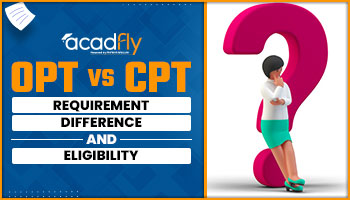

Studying abroad in the Caribbean Islands offers students a unique opportunity to experience diverse cultures, beautiful landscapes, and high-quality education. For those interested in pursuing their studies here, it’s essential to understand the eligibility and documents required to study abroad in the Caribbean Islands. From visa applications to academic prerequisites, preparing the necessary documents can help ensure a smooth application process. This guide provides an overview of the key requirements for international students aiming to make the Caribbean their study destination.
Understanding the Caribbean Education System
The Caribbean education system is known for its blend of traditional and modern teaching approaches, making it an attractive choice for students from around the world. The region offers a variety of programs across fields like medicine, business, tourism, and the arts, allowing students to gain both theoretical knowledge and practical skills. Education in the Caribbean often emphasizes real-world applications, which helps students prepare for careers in local and global industries.
Caribbean universities and colleges are structured similarly to institutions in North America and Europe, with undergraduate, graduate, and doctoral programs available. Students in the Caribbean can earn bachelor’s, master’s, and doctoral degrees, depending on the program and university. Some institutions are accredited by international agencies, ensuring their degrees are recognized globally, which can be important for students looking to work or further their studies abroad.
One unique aspect of the Caribbean education system is its focus on local industries, such as tourism and agriculture. Many programs are designed to address the needs of the Caribbean economy, providing students with skills that are highly relevant to the region. For instance, students studying business may have opportunities to work with local businesses, and those studying tourism can gain firsthand experience in one of the world’s top tourist destinations.
Finally, the Caribbean offers a welcoming environment for international students. Schools often have diverse student populations, which fosters a sense of global community on campus. Universities in the Caribbean are also known for their friendly and supportive atmosphere, making it easier for students to adjust to a new culture while receiving quality education. This inclusive environment, combined with a high standard of education, makes the Caribbean a popular choice for students looking to study abroad.
Eligibility for Caribbean Schools: General Requirements
Meeting the general eligibility requirements for Caribbean schools is an essential first step for international students interested in studying in the region. Most schools have specific criteria to ensure students are prepared for the academic and cultural experience of studying abroad. Here are the main requirements to consider when applying to Caribbean universities.
1. High School Diploma or Equivalent
Most Caribbean universities require students to have a recognized high school diploma or an equivalent qualification. This confirms that applicants have completed their secondary education, meeting the academic standards needed for college-level courses. For some specialized programs, additional coursework in specific subjects may also be required.
2. Academic Transcripts
Applicants must submit official academic transcripts from their previous schools, which provide details of their academic performance and courses completed. These records help the admission team assess an applicant’s academic abilities and readiness for the program. Transcripts are often required to be verified by the issuing institution to ensure authenticity.
3. English Proficiency Test Scores
For students whose first language is not English, proof of English proficiency, such as TOEFL or IELTS scores, is typically required. This ensures that students can comfortably follow the course material, participate in discussions, and succeed in an English-speaking academic environment. Minimum score requirements may vary depending on the program.
4. Standardized Test Scores (If Applicable)
Some programs, particularly competitive ones, may require standardized test scores like the SAT or ACT. These scores provide an additional measure of a student’s academic skills and college readiness. Not all Caribbean schools require these scores, so it’s essential to check each program's specific criteria.
5. Personal Statement or Essay
A personal statement or essay is often required to explain the applicant’s motivation for choosing the Caribbean and their goals for the program. This is an opportunity for students to share their interests, experiences, and aspirations, helping the admissions team understand their commitment and personal fit for the school and program.
Caribbean Student Visa: Application and Requirements
Applying for a Caribbean student visa is a crucial step for international students planning to study in the region. Each Caribbean country may have slightly different visa requirements, but there are general steps and documents most students will need to prepare. Here are the main points to keep in mind for a Caribbean student visa application.
1. Acceptance Letter from a Caribbean University
Students need an official acceptance letter from a recognized Caribbean university as part of their visa application. This letter proves enrollment in a program and is often required by immigration authorities to confirm the student’s purpose for entering the country.
2. Valid Passport
A valid passport is essential for obtaining a student visa, and it should typically be valid for the entire duration of the study program. Many countries require that passports have at least six months of validity left, so students should renew if necessary.
3. Financial Proof
Students must show financial proof, such as bank statements or a scholarship letter, to demonstrate that they have the funds to support themselves during their stay. This requirement assures the government that students can cover their tuition, living expenses, and other costs while studying.
4. Health Insurance and Medical Examination
Some Caribbean countries require students to provide proof of health insurance or undergo a medical examination as part of the visa process. This ensures that students have access to healthcare if needed and helps protect public health within the country.
5. Completed Visa Application Form and Fees
Students will need to complete the visa application form provided by the country’s consulate or embassy and pay any associated fees. It’s important to review each country’s application guidelines, as fees and processing times can vary across Caribbean nations.
How to Apply for Caribbean Universities
Applying to Caribbean universities is a simple process that begins with researching the programs and schools that best fit your career goals. Caribbean universities offer a range of studies, from medicine to business and the arts, so it’s essential to choose a program that matches your interests. Once you’ve selected a program, review the specific admission requirements on the university’s website, as each program may have unique criteria.
After understanding the requirements, gather the necessary documents, which typically include your high school transcripts, diploma, and possibly standardized test scores like the SAT or ACT. Most universities will also ask for a personal statement explaining why you want to study there and your academic goals. This personal statement gives the admissions team insight into your motivation and helps them see why you’re a good fit for their program.
If English is not your first language, you may need to show English proficiency through tests like TOEFL or IELTS, as most Caribbean universities teach in English. Having a good score on these tests assures the university that you’ll be able to understand and participate in classes. Some universities may offer language support if needed, so it’s helpful to check with the admissions office if you’re concerned about meeting the language requirements.
Once your application is ready, submit it through the university’s application portal or by mail if that’s preferred. Many universities provide updates online, so you can track the status of your application. After you receive an acceptance letter, you’ll need to start the visa application process, which may require your acceptance letter and proof of financial support. Applying early ensures you have enough time to complete all steps before the school year begins.
Frequently Asked Questions
1.What are the general eligibility requirements to study in Caribbean universities?
2.Do I need a student visa to study in the Caribbean?
3.What documents are needed for admission to Caribbean medical schools?
4.How important is the personal statement in the application process?
5.Are there English proficiency requirements for non-native speakers?









